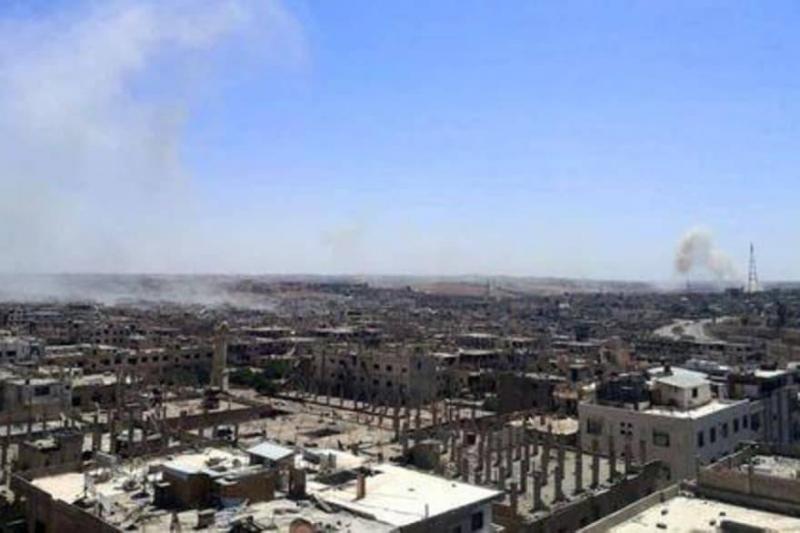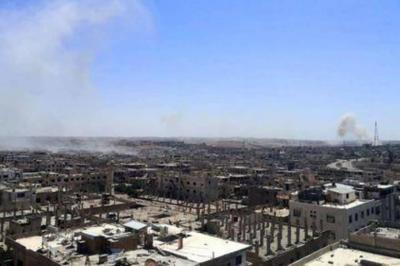Military and civilian sources reported that the Russian military police began patrols on Wednesday in the last stronghold of the armed opposition in southwest Syria, under an agreement that halted an offensive by the Syrian army supported by Iranian-backed forces on the birthplace of the 2011 uprising. Russian military leaders brokered the deal late Tuesday to avoid a bloody guerrilla war after the Syrian army's Fourth Division carried out the fiercest shelling in the heart of Daraa city in two months of siege.
Russian forces raised the Russian and Syrian flags within Daraa al-Balad, where the first peaceful protests against the Assad family's rule took place in 2011 before they were suppressed by security forces, leading to widespread unrest across the country and the outbreak of civil war. Negotiators stated that armed opposition groups in the region began to hand over light weapons under the agreement, based on assurances that the Russian military police would carry out the patrols and guard checkpoints to prevent Iranian-backed armed groups from entering, thereby preventing retaliatory actions.
The Syrian army claimed that the agreement finally restored state control over an area that had long been devoid of security. However, some residents expressed concerns about the new arrangement. Abdullah Abu Zaid, a resident of Daraa whose wife and four children were killed in a Russian airstrike in Daraa province during an earlier phase of the war, stated, "It's a sad day to see the flag of the Russian occupier and the criminal regime in the birthplace of the revolution for which tens of thousands have sacrificed."
In 2018, government forces, aided by Russian airpower and Iranian-backed armed groups, regained control over Daraa province in southwest Syria, adjacent to the Jordanian border and the occupied Golan Heights. Under a previous Russia-brokered agreement, Western-backed armed opposition in Daraa handed over heavy weapons but was allowed to continue managing Daraa al-Balad.
Moscow had also made promises to Israel and the United States in 2018 that it would curb Iranian-backed forces to prevent them from expanding their influence in the sensitive border area. During talks that led to Tuesday's agreement, Daraa al-Balad officials warned Russian officers that any entry of Assad-allied armed groups during the war would lead to retaliatory actions, ranging from arrests to extrajudicial executions.
Regarding the recent agreement, Abu Yusuf al-Masalmeh, a negotiator from Daraa al-Balad, stated, "The Russian army must commit to its promises to prevent Iranian militias from encroaching, killing people, and displacing them."
On Wednesday, the U.S. Department of State condemned what it described as a "ruthless assault by the Assad regime on Daraa that resulted in civilian casualties and the displacement of thousands." Local residents and officials reported that most of Daraa al-Balad's approximately 50,000 inhabitants fled after weeks of shelling during which the army blocked access to food, medicine, and fuel, though it opened a corridor for civilians to leave.
Assad has managed to regain control against the armed opposition and Islamist groups that allied against him in a war that saw Russia intervene on his behalf in 2015. Since then, he has been able to restore control over about 70 percent of the country.




